 |
| French Concession |
There’s no blue sky in Shanghai, an old saying but truthful since there is mostly white haze, better known as pollution, that surrounds the city. But there certainly has been a rollicking history and the Shanghai of today is just as exciting and creative, though there are many restrictions in getting the word out. This was a day of learning, having lectures and conversations with two historians.
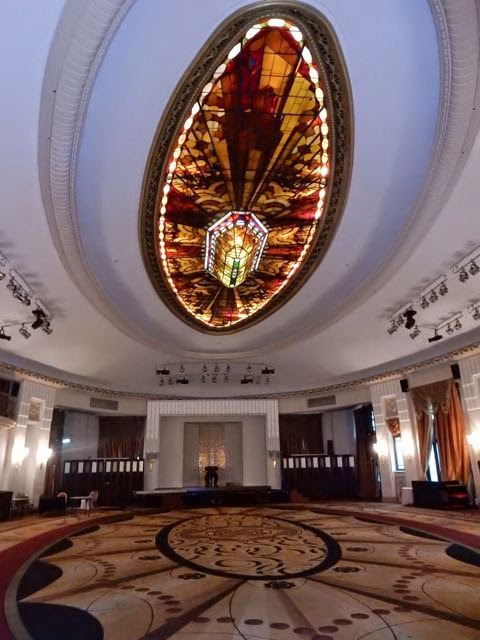 |
| Ballroom Mao frequented |
It appalls me, like rape, to come to grips with how the British and other colonial nations forced themselves on China. For centuries China dynasties voided any efforts to get trade agreements and fought to keep themselves unattached from entangling alliances with the West. But the door opened a crack in the 19th century during the two Opium Wars and the aggressive, land hungry powers pushed down the doors like a typhoon. In a few years, Britain and France had built a colonial paradise in Shanghai, a rural port in history, for themselves, not for the Chinese, all because of the trade of opium for tea, silk and beans. Opium seduced so many Chinese into addiction that many were unable to work and stay alive. And meanwhile the British had an obsession for tea (even the Boston Tea Party tea was en route from China), making it part of their daily ritual like the rest of us brush our teeth. Just trading did not suffice. They built Shanghai into a sort of Las Vegas mentality with casinos, gambling, prostitution, corruption, and primarily the Green Gang, China’s version of the mafia which thrived in opium bootlegging and kidnapping and gangsta activity and was led by prosperous and cruel Dr. Du. (Information about the Green Gang is hard to find but historians love to tell the stories and compare him to American super-gangsters).
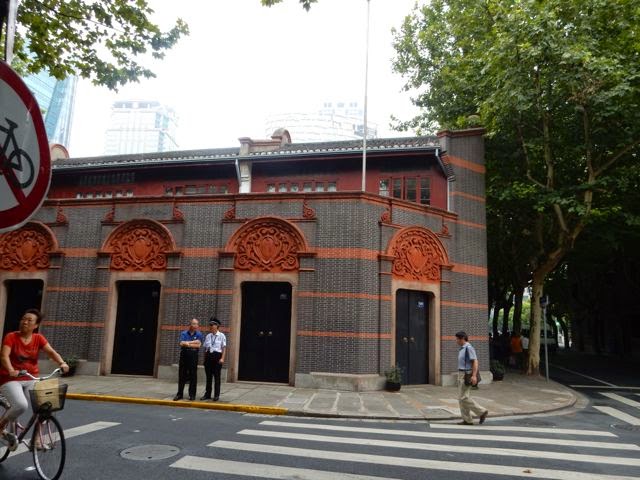 |
| New World Neighborhood |
The Americans, Germans, and Dutch trickled into Shanghai as well and were grouped together in what was called the “Foreign Concession”, where they too reigned without answering to Chinese laws. Foreign nationals declared themselves immune to the law of the land so they had their own police force made up of their own countrymen, who had power over the Chinese police force, and it was normal that the coolies and rickshaw drivers and lowly workers were abused, paid a pittance, starved and beaten, most of them dying by the age of 35. For the wealthy, Shanghai was a paradise for adventurers and dreamers. This was true until Mao ZeDong burst in with the Cultural Revolution and Great Leap Forward and attempted to wipe out anything Western, if he didn’t want to use the classical buildings for his own needs.
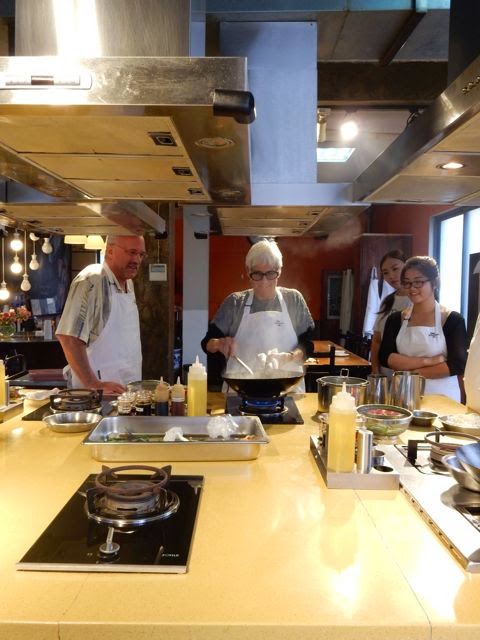 |
| Attacking the Wok |
Women had little power, if any, although Mao ZeDong claimed women held up half the sky. There are 120 men to one woman and the problem arose that so many men in the city cannot find wives, cannot get sex, or reproduce and there is a crisis. There has been a major sex trafficking of women as sellers go to Vietnam to find young girls to meet the needs. The girls come to China, their owners charge a price for the girls taking up life with the client, and but they runaway, returning back to their seller in Vietnam only to get sold to another client.
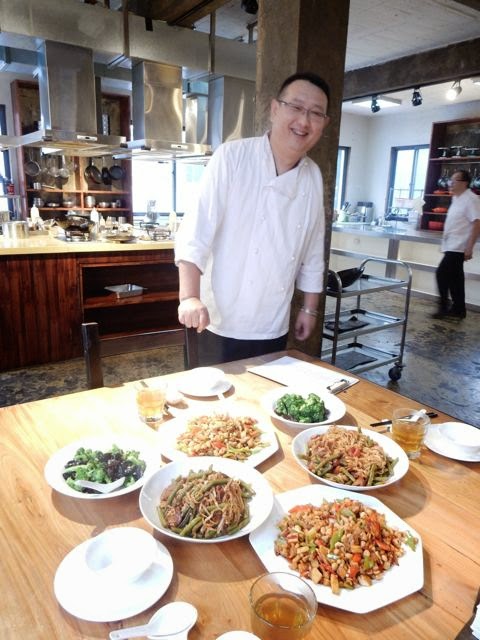 |
| The Meal – Gong Bao Chicken and Braised Noodles With String Beans |
nly Chaing Kaisheck who inherited Sun Yatsen’s reign as the Nationalist Party founder in the early 1990s, changed focus for women when he married Song May-Ling, the sister of Sun’s widow, and tried to overthrow the Communist interest. This was a time of rebellion and social change. Even Confucius was tossed aside by intellectuals and disillusionment of leaders dominated. Marxism also rose its arms by blaming imperialism and exploitation by the wealthy upper classes for the nation’s pain and hardship. The Communist party was established in 1921 with Mao ZeDong the declared leader. He tried to make everyone equal (the Great Leap Forward) and destroyed all references possible to religion and the West. Luckily, he had a bit of greed in his heart and kept alive the architecture masterpieces such as the French Cafe Hotel where he partied often.
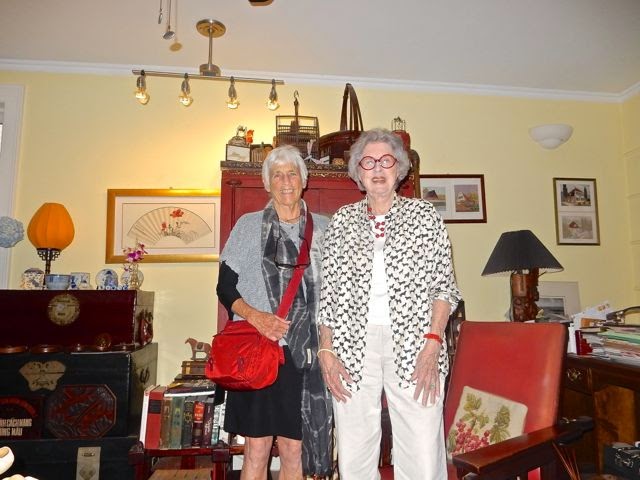 |
| Tess the Historian |
Charlie Song, who studied at Duke University, produced three daughters and fathered them well: one married TeVe Song, finance minister and at one point wealthiest man in the world; his eldest daughter Aileen married H.H. Koong who became the richest banker in China. And his second daughter, Ching Ling, married Sun Yat Sen, father of the new republic. Sun removed power from the last emperor in the Forbidden City and ended China’s feudal dynasties, the Old China cliques. Mai Ling Song, Song’s second married Dr. Chiang Kaisheck, although her father heavily opposed this union. She renounced the high class life style, after graduating from Wellsley in US, and became a shrewd, power-hungry woman who taunted the American Flying Tigers during the war.
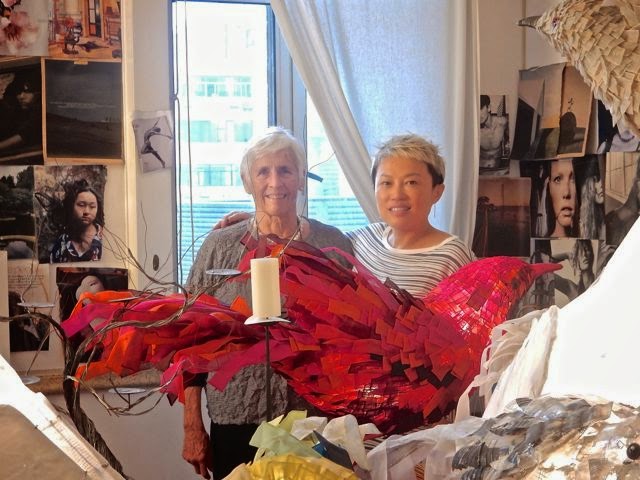 |
| Han Feng’s Birds |
Almost all China’s problems began with the two opium trade wars and treaties. Westerners wanted to purchase more from China than vice versa. British Empire produced an opium mixed with mud and other products, and nicknamed “mud” and packed it in oil skin bags for easy transport and tremendous profits went to the pilgrim descendents of Boston. Such information was part of a two hour lecture by ex-pat Tess Johnson, who filled in many holes about China’s history and current glory. She spoke in depth about the Cefaric Jews deep into the opium trade who settled in the Bund. It’s impossible to record everything here, – she spoke readily about Mao and the Nazis and world wars, but in her ‘80ties, she stores an encyclopedia of information about relationships between China and the Western World and has written many books. She summed up the current challenges for China: 1) Birth control; 2) Fighting against corruption; 3) Ethics in Chinese business; 4) Degredation of the environment and food and the drug chain – you never know what you are eating or taking; 5) the Muslim minorities – there are 54 minorities in China, and only the Muslims give the state problems.
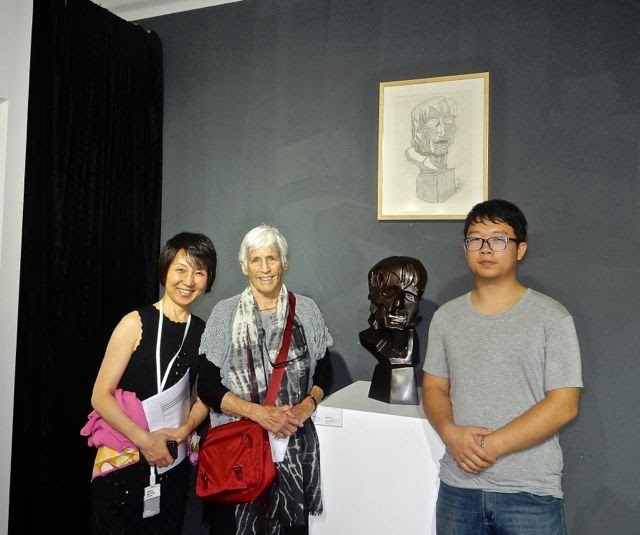 |
| Julia and young artists |
In between the two conversations with historians, we had the joyful moment of attending a family run cooking class in the French Concession. Under the eyes of a Chinese chef, with a sense of humor, I learned how to wield a huge cleaver to slice tiny triangles and shapes out of ginger, lotus root, and bell peppers, as well as grab a wok while it was hot and toss veggies, noodles and assorted oils and sauces without spilling it all over the place, so it was a gourmet delight. And I came away without a scar.
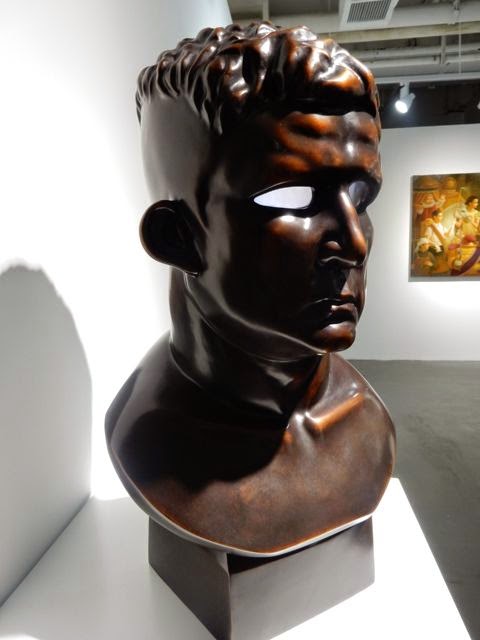 |
| Heads that turn heads |
A final touch to end the day was to stop by an art exposition called “Art in the City” which was three floors underground in a new and sprawling shopping center. The city’s fifteen galleries had joined together to show their newest artists. And it gave us a chance to re-connect with Julia and Suquin (of the Purple Roof Gallery and Mao Space) and to meet a young artist, Wang Guanshan, who sculpts bronze heads (at the same local foundry used my two friends of mine – Claudia DeMonte and Ed McGowan, who opened up the doors for me to meet these delightful art magnates and Hen Feng) that show great promise. Seeing the newest generation’s work, which has simmered down from the initial gush and shock which exploded after the end of Mao, has been encouraging and fascinating. Shanghai art Rocks.

Audrey,
Wonderful photos of you with the historian and others. Except for the pollution, Shanghai must be a fabulous place.
So glad you survived the large cleaver. Remember, we do not want Geraldean to learn how to use one of those cleavers. That might be very dangerous for me.
Please be careful and don’t take any more chances.
God bless you.
Geraldean and I send our love to you,
Judge